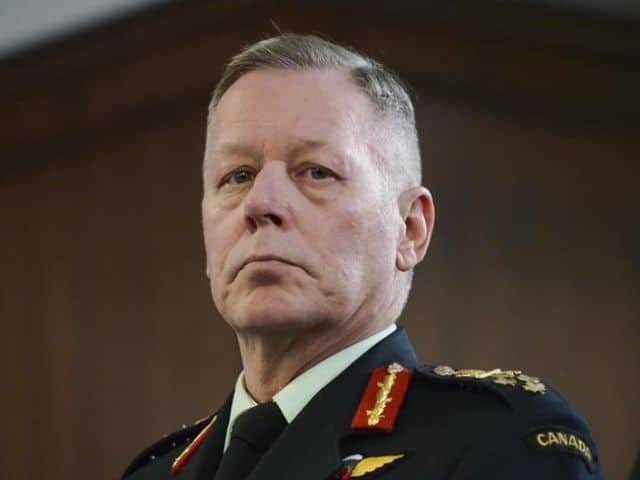
Iranian missiles target Iraqi city used by Canadian Forces
Hours before Iranian missiles hit targets in Iraq Tuesday, including in a city where Canadian troops have been based, the Canadian Forces started to move troops out of the country.
According to U.S. authorities, about a dozen ballistic missiles targeted Al-Asad airbase near Baghdad and the northern city of Irbil, in the part of Iraq controlled by the country’s Kurdish minority. Canadians have long been in Irbil, working with Iraqi troops and maintaining a helicopter unit, and Canada has a diplomatic presence there as well.
The U.S. Defense Department said there were few, if any, casualties among its forces.
Canada’s response just after the attacks was non-committal.
“Minister (Harjit) Sajjan is with senior leadership in the Canadian Armed Forces and the Department of Defence,” said the defence minister’s press secretary Todd Lane in an emailed statement. “The minister is monitoring the situation closely.”
Foreign Affairs Minister Francois-Philippe Champagne’s spokesperson Adam Austen struck a similar note: “Minister Champagne is aware of recent developments in Iraq. We are closely monitoring the situation.”
The Canadian military’s redeployment followed other Western nations concerned about the increasingly volatile standoff between the United States and Iran.
The withdrawal of an unspecified number of Canadian soldiers to Kuwait was billed by chief of the defence staff Gen. Jonathan Vance as a temporary measure intended to ensure their safety and security. When — or even if — they will return is an open question.
In an open letter to the families of the 500 Canadian soldiers in Iraq, Vance said the safety of the troops was his top priority and that security measures were being “considered, reassessed and modified as required on a daily basis.”
“Over the coming days, and as a result of Coalition and NATO planning, some of our people will be moved temporarily from Iraq to Kuwait,” Vance added in the letter, which was posted on Twitter. “Simply put, we are doing this to ensure their safety and security.”
Vance did not reveal how many Canadian troops were being pulled out of Iraq, and the Department of National Defence later said it would not provide that information for security reasons.
However, even as Vance described the withdrawal as temporary, he added: “Naturally, the work we are doing on these missions, and the future of operations in Iraq, remain conditional on maintaining a sufficiently secure and productive operational environment.”
The Canadian contingent includes about 200 soldiers attached to a NATO mission in the south of the country that is training Iraqi counterparts in the basics of soldiering as part of the fight against the ISIS.
There have also been up to 200 special-forces soldiers in the northern part of the country working with specialized Iraqi counter-terror troops while several dozen more Canadians are working with senior Iraqi officials or providing logistical, medical and other support to the rest of the contingent.
All of the Canadians were ordered to suspend their activities and hunker down over the weekend and guard against attack following the killing by a U.S. drone at the Baghdad airport of Iranian Maj.-Gen. Qassem Soleimani, who was seen as the second-most powerful person in Iran.


